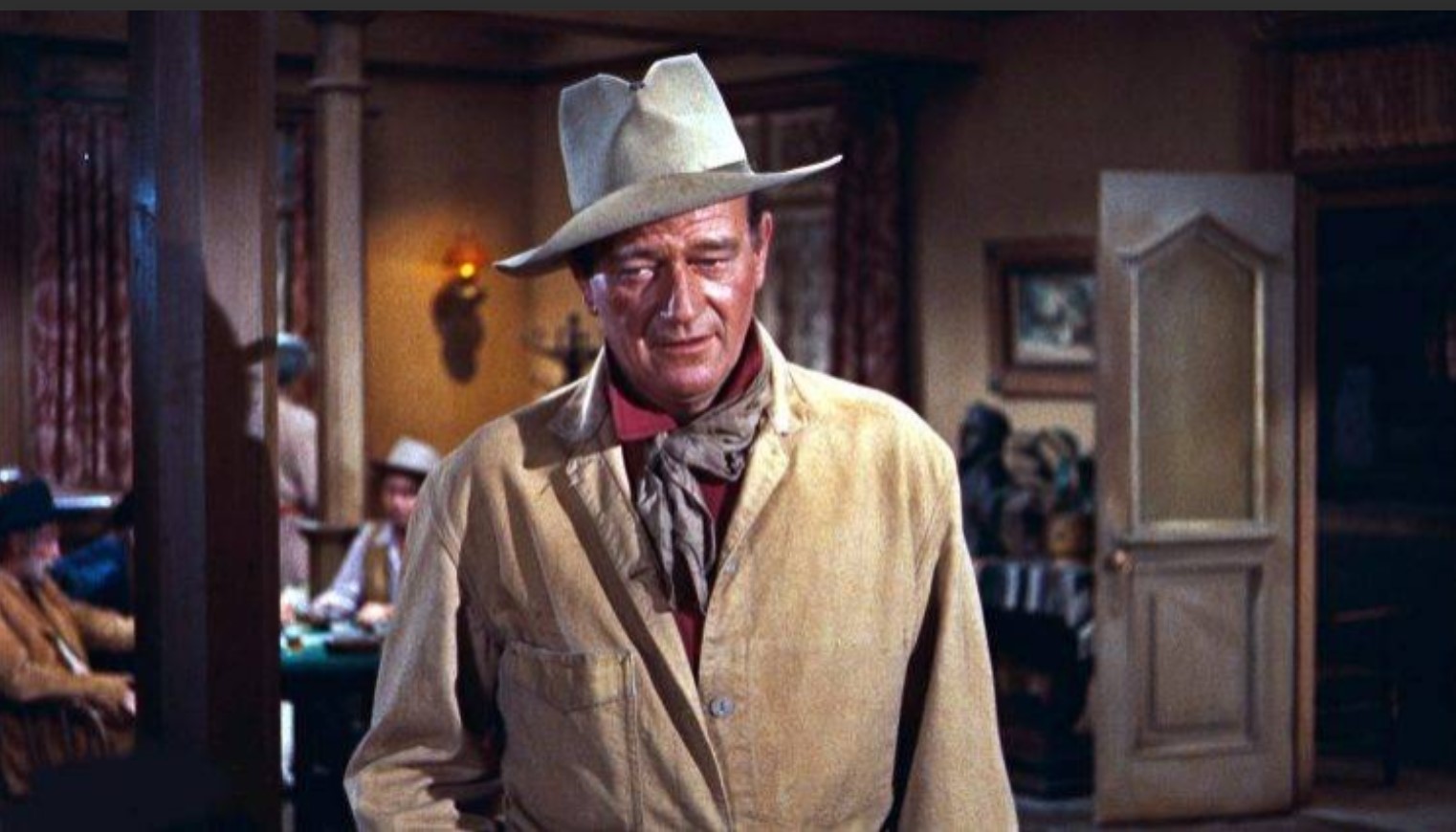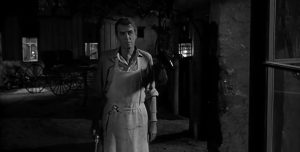We collected every movie where a John Wayne character died, starting with 1928’s Noah’s Ark and ending with 1976’s The Shootist.
American actor John Wayne(Marion Robert Morrison) rose to fame as a cultural icon thanks to his top performances in movies produced during the Golden Age of Hollywood. He appeared in 179 films and television shows over the course of his successful career, which spanned the American New Wave to the 1920s silent era. Wayne was named one of the top male stars of vintage American film by the American Film Institute.
Although he was raised in Southern California, Wayne was born in Winterset, Iowa. In the 1930s, he appeared in many B movies with leading roles, most of which were Westerns. Wayne appeared in 142 films after becoming a well-known star with John Ford’s Stagecoach (1939). John Wayne “personified the nation’s frontier legacy for millions of people,” claims one biographer.
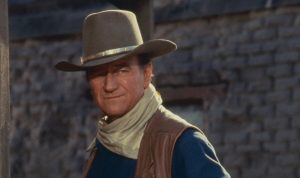
In Red River (1948) and The Searchers (1959), Wayne also plays a Civil War veteran whose niece is kidnapped by a Comanche tribe and a cattleman moving his herd on the Chisholm Trail (1956). He is also renowned for his performances in The Quiet Man (1952), Dean Martin’s Rio Bravo (1959), and The Longest Day (1963). (1962). His final appearance in cinema was in The Shootist, where he played an elderly gunfighter battling cancer (1976).
There are a lot of disputes over John’s death in the movies. In about Fourteen movies, his role perishes, but there are only nine movies in which it’s confirmed that he died.
Movies In Which John Wayne Died
1. Central Airport (1933)
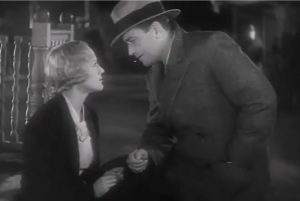
Based on the John C. “Jack” Moffitt short story “Hawk’s Mate,” Central Airport is a 1933 American Pre-Code aviation drama film directed by William A. Wellman. Richard Barthelmess and Sally Eilers both appear in the movie. In the movie, John Wayne played the co-pilot in an uncredited role. His first on-screen demise appears in this movie.
JW, who isn’t named in the cast, plays a co-pilot who attempts to save a passenger from drowning when their jet crashes into the water. After a passenger who was sipping whisky fell off the wing and vanished beneath the waves, Duke heroically dove into the choppy waters.
JW drowns along with the passenger, which is unfortunate because it seems he hasn’t learned to swim. Personally, I would have left the inebriated man to die on his own.
2. West Of The Divide (1934)
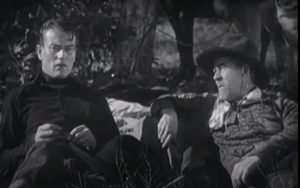
In this movie, a young JW seems to play two roles—one as the good guy and the other as a villain who passes away in the first few minutes.
Following the commercial failure of The Big Trail in 1930, Duke was cast in a series of Poverty Row oaters from 1931 until Stagecoach, which was released eight years later. From the outside, West of the Divide doesn’t seem all that different from the other eight films he produced for the Lone Star production company in 1934.
Ted Hayden is looking for his missing brother in West of the Divide, and he’s also trying to find out who killed his father. When Ted Hayden realizes how much he resembles the late wanted killer Gat Ganns, he takes the chance to pass for him in an effort to gain the information he needs.
John Wayne plays the parts of Ted Hayden and Gat Ganns in this movie to highlight how similar they are. By consuming water from a poisoned waterhole in the role of Gat Ganns, John Wayne perishes.
3. Reap The Wild Wind (1942)
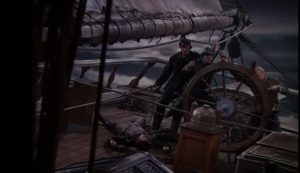
Duke is a bit of a rogue in this colorful DeMille seafaring epic, causing his own ship to capsize because he believes, incorrectly, that Ray Milland, the movie’s primary protagonist, passed him over for the captaincy.
Poor old Susan Hayward, who had inadvertently stowed herself aboard without his knowledge, is drowned as a result of him sinking the ship. JW must make amends for his rude behavior, and there is only one way to do it.
To find out if there was a stowaway on board when the ship sank, John Wayne’s character Jack and another key character named Steve dive into a shipwreck near the end of the movie. However, a massive squid attacks them, and Jack loses his life battling it.
4. The Fighting Seabees (1944)
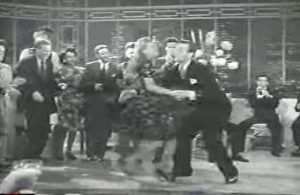
Duke plays the brilliantly named Wedge Donovan, the leader of a construction company hired to operate under combat conditions, in this gung-ho war film about the Pacific War, which was made while the conflict was still being fought.
The Fighting Seabees, a film produced during World War II, is a fictitious portrayal of the Navy’s decision to establish Construction Battalions or CBs—then known as Seabees—so that US forces could advance the war effort in the Pacific despite the threat of attack from Japan.
In the film, John Wayne plays a Seabee who gives his life in order to repel a Japanese invasion. Despite being shot while doing so, he is killed in the explosion that he makes, which compels the enemies to flee.
5. Walk Of The Red Witch
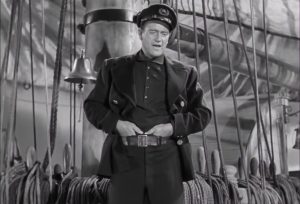
Duke needs to stop boats. This is the second movie in which he either sinks or scuttles a ship, which justifies his death in the climactic scene.
The question of whether he perishes with the ship is still up for debate, even though he performs the same thing in the later movie The Sea Chase. He drowns in the wake of the Red Witch while attempting to salvage gold from the very ship he wrecked. I’d call it poetic justice. He repeats the action in the subsequent movie, The Sea Chase; however, it’s still unclear whether he perishes along with the ship. He perishes while attempting to reclaim gold from the identical ship he scuttled in the wake of the Red Witch. I would describe it as poetic justice.
Wake of the Red Witch, a movie starring John Wayne, relates the tale of antagonistic seamen Mayrant Sidneye and Captain Ralls. A love triangle between the two men quickly turns into Captain Ralls purposefully sinking the Red Witch, the company’s flagship ship, which was carrying gold bullion worth $5 million.
After some time has passed, Captain Ralls returns to the crash in an effort to save the priceless cargo. John Wayne’s character gets caught in the debris and perishes when the ship falls off an underwater ledge.
6. Sands Of Iwo Jima (1949)
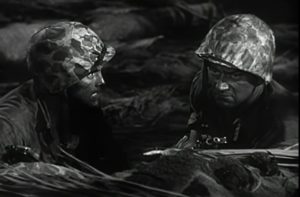
Duke received his first Oscar nod for his performance as the villainous Sergeant Stryker, but he was actually shot in the back.
Iwo Jima has been taken over by him and his fellow Marines, the flag has been raised victoriously atop the island, Stryker and his soldiers are getting along well, and suddenly a sniper shoots him in the back. I believe the sniper was a little nearsighted. He may have truly been shooting at John Agar because of Agar’s lack of acting skill, in my opinion.
7. The Alamo (1960)
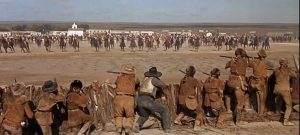
At the conclusion of Duke’s three-hour epic, I always feel a lump in my throat when I see poor old Davy go down fighting. If you watch the extended roadshow version, you’ll notice that the sequence where JW is lanced through the side and pinned against the mission door is lengthened by one or two seconds.
He pulls himself off the door, stumbles away, wobbles slightly (which adds another two seconds), and then goes off to blow up the arsenal, which, to be completely honest, I thought was rather selfish.
On the other hand, you’re probably not in the best frame of mind to think about other people’s safety after being pierced by a huge bloody lance.
8. The Cowboys (1972)
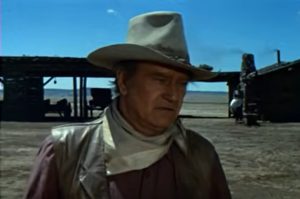
Here, I must be completely open. The Cowboys’ cattle rancher Wil Andersen, played by Duke, sort of invites his own downfall. What does JW do when he and his young cowhands are encircled by a gang of bloodthirsty rustlers led by a very deranged Bruce Dern? He knocks Dern’s lights out before turning away.
What is a snake-eyed psycho killer like Dern supposed to do in that circumstance? Duke could have painted a target on his shirt with a large arrow and the words “Shoot Here” written across the back. Dern gladly complies and executes Duke in cold blood. I believe that Duke’s death scene in The Cowboys is the most startling and, I assume, unexpected by audiences at the time, following Stryker’s death in Sands of Iwo Jima.
9. The Shootist (1976)
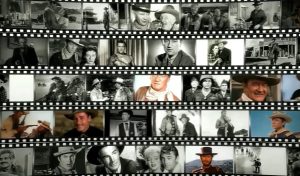
As dying gunfighter J.B. Books in his final movie, JW gets to pick the moment and location of his own demise since he doesn’t want to endure the embarrassment of dying of cancer.
The remaining portion of the movie is basically a protracted build-up to the inevitable, with Books organizing a fight with a variety of assassins who want to add his notch to their belt. JW accidentally kills them all, but he is then fatally shot by a bartender. Although it wasn’t precisely the noble and suitable conclusion Duke’s character had envisioned, Ron Howard will now be spared the fate the destined Books did.
In the end, Books’ demise was a selfless deed and a clumsy attempt at self-imposed euthanasia.
Some Of The Disputed Movies Of John Wayne’s Death
Off-Screen/Disputed Movies
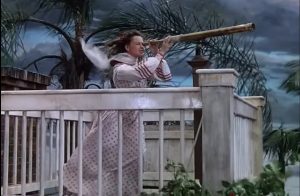
There are nine movies where John Wayne’s character is known to have passed away on screen, while there are five movies where his character either passes away off-screen, in the background or with his destiny unknown.
He dies during the flood scene in Noah’s Ark (1928) when he is an uncredited stuntman. He portrays two characters in the 1928 film Hangman’s House, one of whom might be seen being hanged. In The Deceiver (1931), John Wayne portrays the corpse of a character who was originally portrayed by another actor. His character’s end is left unresolved in Sea Chase (1955). The Man Who Shot Liberty Vance (1962), on the other hand, opens at his character’s funeral before jumping into a flashback without ever showing his character’s demise.
1. The Deceiver (1931)
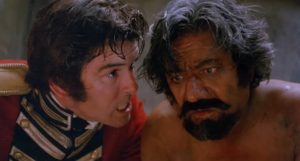
In this movie, Apparently, Ian Keith’s character passes away, and his corpse changes into Duke.
I suppose you take whatever opportunities present themselves when you first begin your acting career, and why not? Although his scenes were left off the final cut, Kevin Costner played the corpse in The Big Chill.
2. The Sea Chase (1955)
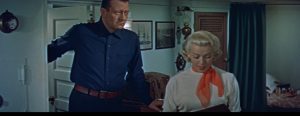
After JW sinks his ship, the fate of Duke and Lana Turner isn’t revealed until the very end of the movie, but let’s be real: they’re going to survive. They were destined to be together.
It’s clear that Lana only wants to stroll into the sunset with her tall, lanky hero, even though Duke actually does the strolling.
Compared to JW, Ms. Turner seemed very diminutive in this movie. I wouldn’t be surprised if he simply placed her in his pocket rather than attaching her to the dashboard of his vehicle.
3. The Man Who Shot Liberty Valance (1962)
At the opening of the movie, Tom Doniphon, played by Duke, is rigid as a board and ready to be buried; it is assumed that he either passed either naturally or from drinking too much whiskey.
The real narrative of the guy who, in reality, stopped Liberty Valance from becoming the town bully of Shinbone is then revealed in flashbacks by the film.
Knowing from the outset that JW won’t make it to the last reel can’t help but paint a little veil of hopelessness over the entire movie, and to be honest, this is John Ford at his most pessimistic. However, since this is the final collaboration between John Ford and Wayne Western, you have to go with the flow.
4. Hangman’s House (1928)
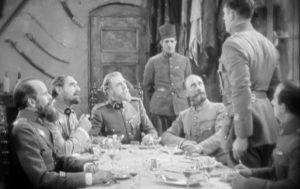
In a flashback scene where Justice O’Brien, the hanging judge, is visited by a hallucinatory list of his victims, this character makes its debut.
A close-up of Wayne with a noose around his neck follows a profile shot of him as a convicted man going to be hanged. This scene is more of a compilation of posed photographs or tableaux vivant as they are known, like many silent movie sequences. It’s also clear that a young-looking Duke is at the end of the rope, but Ford was never one to move the camera around much.
He reappears in the movie later on as an animated spectator at horse racing, still very much alive. In fact, at the finish line of the race, he becomes so ecstatic that he pulls the fence on the racing course out of the ground. The movie is currently widely accessible on DVD and is good to watch.
The Manner In Which John Wayne Died On Camera Might Be Summed Up As Follows:
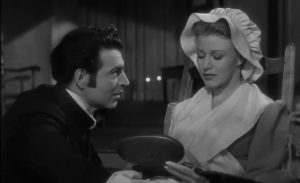
Drowning (6) (once with the aid of a giant squid)
Four times for back shots (assuming he also drowns in The Sea Chase)
Hanged – 1, Natural causes – 1, Being shot by a furious Mexican – 1, Drinking poisoned water – 1
The majority of the aforementioned examples represent heroic self-sacrifice, with The Alamo standing out as the most valiant and memorable. All things considered, though, my advice to Duke, if he were alive today, would essentially be to stay away from the sea.

















